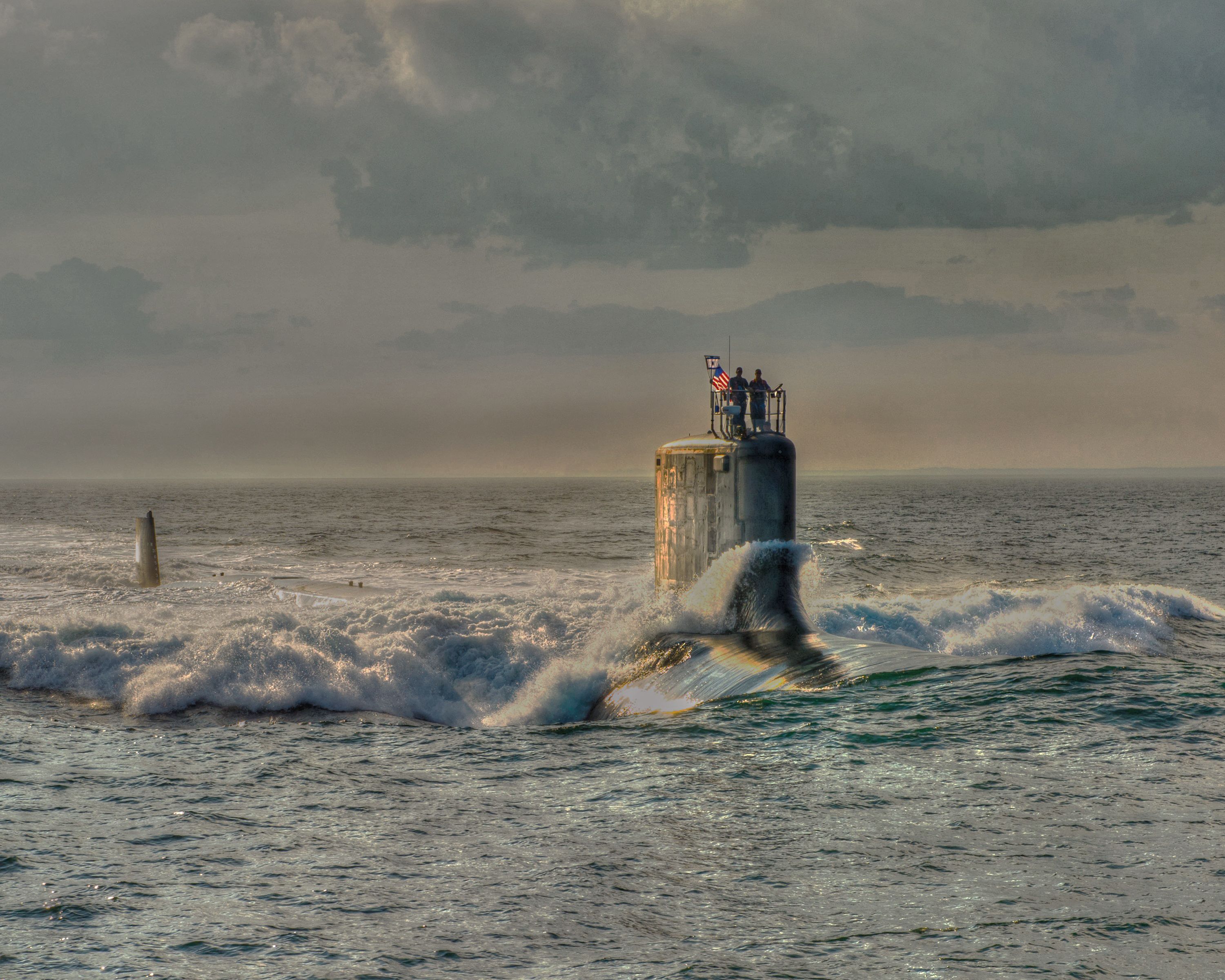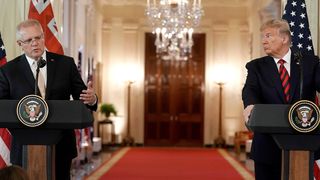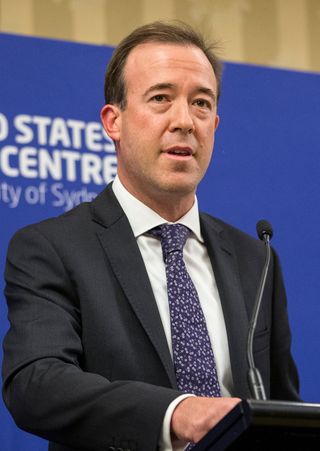There is little reason to doubt recent reporting that some in Canberra’s national security community would prefer President Donald Trump to prevail next week.
Given the evidence of Trump’s four years in office, such a predisposition prompts scrutiny.
The Trump admirers should provide their colleagues with considered answers to two questions. First, what has Australia gained from Trump? Second, what might the next four years look like if Trump is returned?
Washington’s foreign policy establishment not only shielded the alliance from Trump’s wilder impulses but sounded fanfare: Australia, along with France, was one of only two countries given a state dinner at the White House.
Australia has gained precious little from this presidency. Through gritted teeth, Trump honoured a refugee resettlement deal signed by his predecessor. He exempted Australia from steel and aluminium tariffs, but because of appeals to economic common sense, not sentiment. It took more than two years for his ambassador to arrive here.
It is true, of course, that Washington’s foreign policy establishment not only shielded the alliance from Trump’s wilder impulses but sounded fanfare: Australia, along with France, was one of only two countries given a state dinner at the White House.
Yet, as with all ceremony, it is worth examining what remains after the teary mist clears.
At the height of alliance co-operation during Vietnam, Australia was not taken into Washington’s confidence over troop withdrawals, bombing halts or the recalibration of Asia policy under Nixon. Canberra read about those decisions in the press. And it remains debatable as to what Australia gained from joining the Bush administration’s ill-fated invasion of Iraq in 2003.
Consider the atmosphere now pervading Australian domestic and international life. Trump has alienated the Australian population further from the United States. He has hyped the confrontation with China to such an extent that it has allowed those outside the trade portfolio here and elsewhere to depict Beijing as the "enemy".
Trump has alienated the Australian population further from the United States. He has hyped the confrontation with China to such an extent that it has allowed those outside the trade portfolio here and elsewhere to depict Beijing as the "enemy".
President Xi Jinping has done more than enough to sow seeds of mistrust, and well before Trump came to office. But we now have a climate in this country where neither the Prime Minister nor the Opposition Leader see fit to rein in fire-breathing senators questioning the loyalty of Chinese-Australians.
Playing deputy sheriff again
Surely the supreme irony too is that while Australian politicians rightly sense their public’s desire for a protective security umbrella, Trump’s idiosyncratic meandering on Asian alliances has meant that this umbrella is less secure than ever before. No wonder top strategic and foreign policy analysts have begun to consider how Australia might navigate a new world "alone".
Read Prime Minister Scott Morrison’s speeches and you find much to differentiate from the fierce ideological crusade against China articulated by US Secretary of State Mike Pompeo. But for all that, few in Beijing or elsewhere would have discerned this as a genuine policy difference. Regional perceptions that our policy lacks authenticity remain hard to shift. Our desperation to be the leader of the pack in "pushing back" against Beijing – legitimate and necessary as it is to withstand Chinese intimidation – has once more floated the "deputy sheriff" epithet.
On the other hand, the benefits seen from some regional capitals, even if never acknowledged, has been that having Australia on the front foot creates space for them in managing China. Japan, South Korea and Singapore in particular have had a surer touch in balancing competition with China while co-operating with it where advantageous. The Japanese haven’t yet cancelled Xi’s planned state visit – which would be the first since 2008.
Even if some regional partners warm to the idea of Australia becoming America’s unsinkable aircraft carrier, Canberra will become more and more inauthentic politically – a status that China is sure to exploit in any future crisis.
The claim that a second Trump term would be different or that he would be more effectively constrained fails to convince. The restlessly mercurial Trump would be just as challenging to allies, including Australia, as he is now.
The claim that a second Trump term would be different or that he would be more effectively constrained fails to convince. The restlessly mercurial Trump would be just as challenging to allies, including Australia, as he is now.
Canberra probably anticipates that Trump will be less interventionist in the Middle East, but the reality is the US remains firmly entangled in the political briar bush there, and few Australian governments of either persuasion will have the courage to say "no" when Washington asks for alliance support again.
What too, if the assumption that a second Trump term sees an even further hardening of US China policy is wrong? Surely the one, abiding fact to take from the past four years is that Trump turns on a dime. Arguably, he is more likely than Biden to make a play for history – not necessarily a grand bargain with Beijing, but perhaps a more co-operative working relationship, or at least one more evenly poised between competition and engagement. It may seem unlikely, but who can really know Trump’s mind?
The salient historical episode here for Canberra remains that of Prime Minister Billy McMahon, who failed to read the signs of change in US-China policy in the late 1960s.
Psychotic at not being given advance notice of Nixon’s announcement that he would visit Beijing in 1972, McMahon scribbled across his departmental brief with furious incredulity that the US "had told the Pakistanis!" And he dug his nib in so deep that it slashed a ravine of rage into the page.
Then, making fists in his pockets, he gave a speech poking fun at President Nixon.
This is the perennial problem of being in an alliance with a great power. It can change policy direction at a moment’s notice, thinking little of those left scrambling in its slipstream. Trump surely magnifies these risks.




.jpg?rect=0,80,3000,1989&fp-x=0.5&fp-y=0.44772296905517583&w=320&h=212&fit=crop&crop=focalpoint&auto=format)

